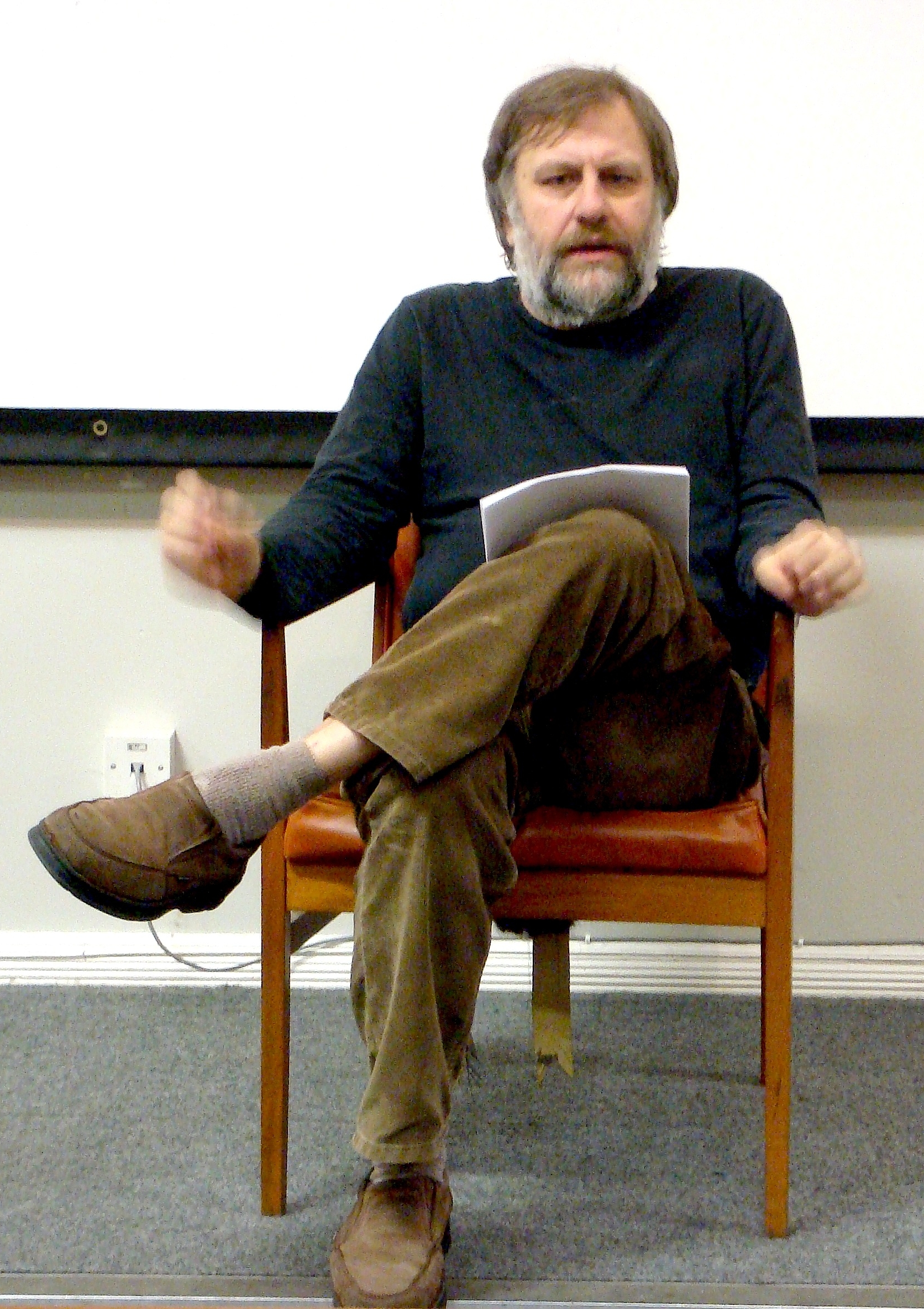Origine: Da Il Grande Altro, p. 109.
Slavoj Žižek frasi celebri
Origine: Da Il fragile assoluto: "Krhki absolut: enajst tez o krščanstvu in marksizmu danes. Med psihoanalizo in religijo", Analecta, Lubiana, 2000, p. 132.
da Il Grande Altro, a cura di Marco Senaldi, Feltrinelli
Origine: Da Distanza di sicurezza, traduzione di Marina Impallomeni e Daniele Francesconi, Manifestolibri, Roma, 2005.
Rispetto al cibo, questo comporta ovviamente il vegetarianesimo: il non mangiare animali morti
Origine: Da Vivere alla fine dei tempi, cap. I.
Slavoj Žižek: Frasi in inglese
“We feel free because we lack the very language to articulate our unfreedom.”
"Introduction: The Missing Ink", in Welcome to the Desert of the Real!: Five Essays on September 11 and Related Dates (2002), p. 2
Lecture "Year of Distraction" http://www.youtube.com/watch?v=ChWXYNxUFdc, at 1:07.
Interview in HARDtalk, BBC World Service (12 January 2010)
Origine: Less Than Nothing (2012), Chapter One (The Drink Before), Vacillating The Semblances
Contesto: The implicit lesson of Plato is not that everything is appearance, that it is not possible to draw a clear line of separation between appearance and reality (that would have meant the victory of Sophism), but that essence is "appearance as appearance,"that essence appears in contrast to appearance within appearance; that the distinction between appearance and essence has to be inscribed into appearance itself. Insofar as the gap between essence and appearance is inherent to appearance, in other words, infsofar as essence is nothing but appearance reflected into itself, appearance is appearance against the background of nothing - everything appears ultimately out of nothing.
Origine: The Sublime Object of Ideology (1989), p.33, Idea's Appearing
that is, the lack in the Other.
148
The Sublime Object of Ideology (1989)
Conversations with Žižek by Slavoj Žižek and Glyn Daly (Cambridge: Polity Press, 2004), p. 45
Origine: Less Than Nothing (2012), Chapter Two, The Thing Itself: Hegel, pp. 200
First as Tragedy, Then as Farce (2009)
that's a MacGuffin, a pure nothing which is non the less efficient... what Lacan calls object petit a: a pure void which functions as the object cause of desire.
183
The Sublime Object of Ideology (1989)
“Prohibition of desire leads to desire for prohibition.”
Origine: Slavoj Žižek: Wokeness, Psychoanalysis, and Quantum Mechanics | Robinson's Podcast. https://www.youtube.com/watch?v=IxmZ4AVac7U
“What cannot be described should be inscribed into the artistic form as its uncanny distortion.”
Origine: Less Than Nothing (2012), Chapter One (The Drink Before), Vacillating The Semblances
Contesto: The horror of the Holocaust cannot be represented; but this excess of represented content over its aesthetic representation has to infect the aesthetic form itself. What cannot be described should be inscribed into the artistic form as its uncanny distortion.
Anecdote about the Soviet suppression of the Prague Spring in 1968, quoted in The New Yorker (5 May 2003), p. 39 http://books.google.com/books?id=AZQeAQAAMAAJ&q=%22cakes+and+watching+Russian+tanks+against+demonstrators.+It+was+perfect%22&dq=%22cakes+and+watching+Russian+tanks+against+demonstrators.+It+was+perfect%22&hl=en&ei=3HRhTpzzPIrv0gGwiazpDw&sa=X&oi=book_result&ct=result&resnum=1&ved=0CCoQ6AEwAA
Origine: The Sublime Object of Ideology (1989), pp.27, "Totalitarian Laughter"
Reverberations 2. Reverberations of the Crisis in a Multi-Centric World
Living in the End Times (2010)
